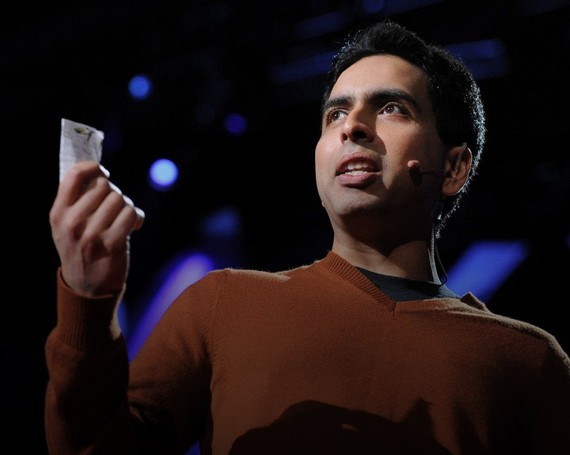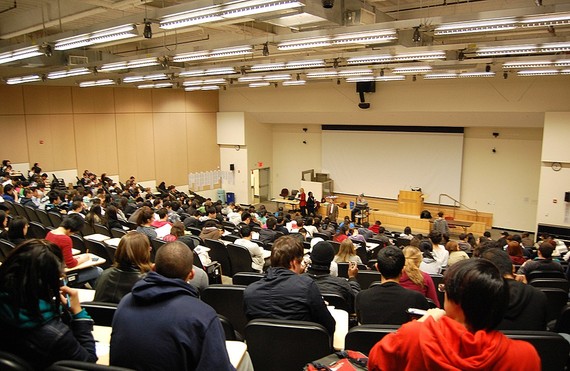The honeymoon is over. People are writing about how online education will never replace offline education. I'd like to challenge that view: Not only will online education eventually be as good as offline education, it will be better.
Saying that online education will never be as good as offline (because it's not currently as good) is like taking one look at a Model T, saying that it's unsafe, and urging everyone to switch back to horses.
The reason online classes will eventually be better than offline classes is simple:
We can measure and respond to students' behavior much more easily and quickly when education is digital than when it is analog.
On the other hand, what makes for a good teacher in a classroom setting? A good teacher is someone who can:
- Come up with compelling content that explains complicated topics,
- Take in a lot of information about how students are responding to that content,
- Quickly adjust the style based on that information quickly.
A good teacher can see the look in a student's eyes and tell immediately whether a particular topic is resonating or not. He or she has the ability to reiterate a point and respond to questions in real time. That's what we mean when we say that an in-person classroom experience is more "personal" -- and it's hard to imagine online education being able to match that anytime soon.
But let's suspend disbelief for a second. In theory, a computer can take in vastly more information than a human can and respond to it much faster. According to Scientific American, two years ago the fastest computer could store almost ten time as much data as the human brain and process it almost four times as fast.
Companies in the online education space are not currently taking advantage of even a fraction of the data that they could be.
Imagine what a good teacher could do if he or she knew where exactly a student was getting confused during a lesson, how long it took that student to complete an exercise, or even the student's physiological responses to the content (say, for example, by tracking heart-rate or eye movements via webcam -- forget about the creepy factor).
There are a handful of education startups already tracking some of this data, but they've barely scratched the surface of how to use it to make education more compelling.
This brings me to my second and more pressing point:
The biggest problem with in-person education is that it forces a linear, one-size-fits-all teaching style.
In any classroom, there will be some students that are behind and some that are ahead.
Even the best teacher in the world must deal with this tradeoff, which boils down to the following question: Should I slow down to help more students understand, or speed up to cover more material?
And so they inevitably end up settling on a pace and an educational approach somewhere in the middle.
As a result, in-person education is always suboptimal for a large number of students in a classroom.
Online education can solve this problem because it allows for personalized learning.
Educational content and style can adapt to a particular student and that student's response to a particular lesson.
Imagine a world in which no one person experiences the same class in the same way. One that adjusts a lesson on computer programming depending on whether a student already has previous experience with programming, or is a total beginner -- why not use concepts a student may already have to allow them to learn something faster?
Or one in which the way the material is delivered is different depending on whether the student is an auditory, a visual or a kinesthetic learner.
Or one in which the order of the lessons themselves are rearranged. (Or A/B tested!)
Or one that can identify early that a student might get stuck in an upcoming lesson and takes him or her on a learning detour to reinforce important concepts and avoid frustration that might otherwise lead to abandonment.
Actually, you don't have to imagine this world, because Salman Khan is already doing it with Khan Academy (watch 13:35 if you're not yet sold on the value of personalized education).
Finally, advancements in online education allow teachers to treat classes in the same way that startups treat products.
There are tons of amazing tools out there for a/b testing, onboarding, gamification, email campaigns, measuring user satisfaction, and so much more that startups use. Why not apply the same tools to education? It's going to happen, it's only a matter of time.
That's why it's frustrating to hear people brush off online education as a failure that will never amount to anything. Let's see the current batch of online educational classes and platforms as what they really are: a first attempt.

